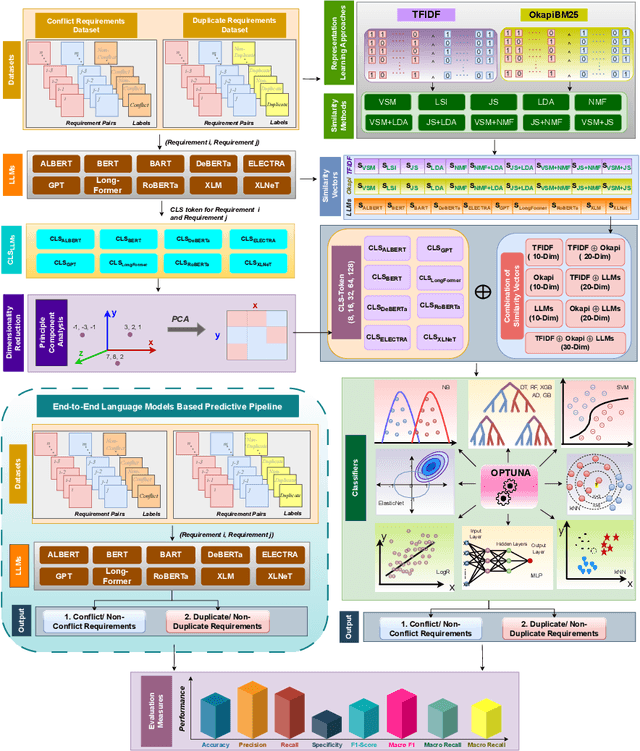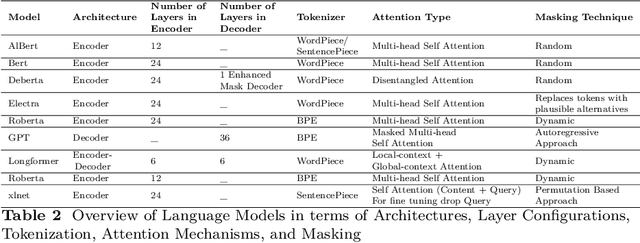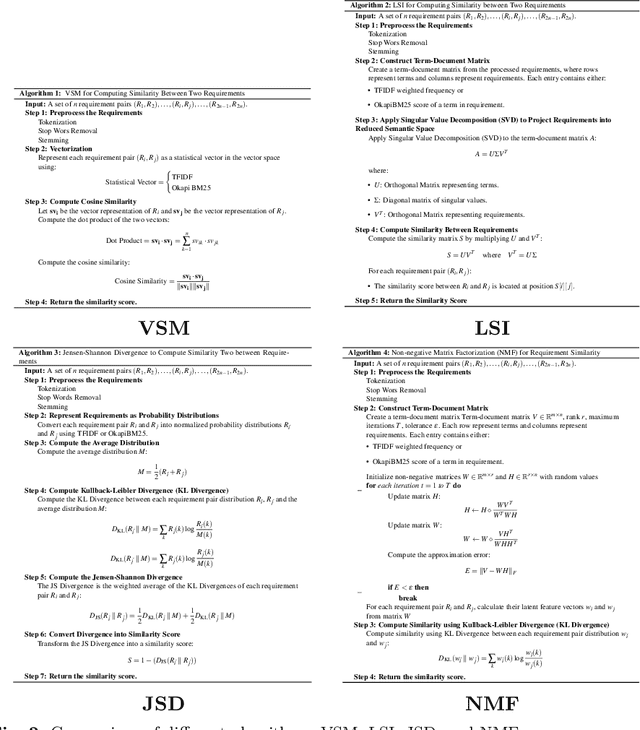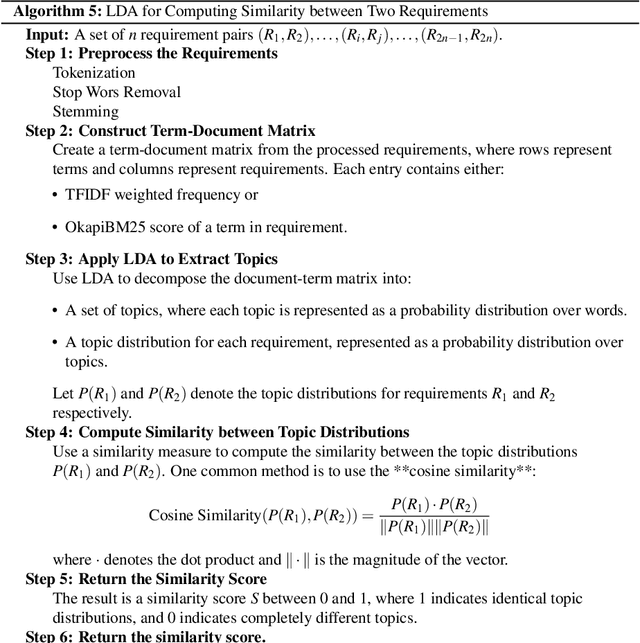PassionNet: An Innovative Framework for Duplicate and Conflicting Requirements Identification
Paper and Code
Dec 02, 2024



Early detection and resolution of duplicate and conflicting requirements can significantly enhance project efficiency and overall software quality. Researchers have developed various computational predictors by leveraging Artificial Intelligence (AI) potential to detect duplicate and conflicting requirements. However, these predictors lack in performance and requires more effective approaches to empower software development processes. Following the need of a unique predictor that can accurately identify duplicate and conflicting requirements, this research offers a comprehensive framework that facilitate development of 3 different types of predictive pipelines: language models based, multi-model similarity knowledge-driven and large language models (LLMs) context + multi-model similarity knowledge-driven. Within first type predictive pipelines landscape, framework facilitates conflicting/duplicate requirements identification by leveraging 8 distinct types of LLMs. In second type, framework supports development of predictive pipelines that leverage multi-scale and multi-model similarity knowledge, ranging from traditional similarity computation methods to advanced similarity vectors generated by LLMs. In the third type, the framework synthesizes predictive pipelines by integrating contextual insights from LLMs with multi-model similarity knowledge. Across 6 public benchmark datasets, extensive testing of 760 distinct predictive pipelines demonstrates that hybrid predictive pipelines consistently outperforms other two types predictive pipelines in accurately identifying duplicate and conflicting requirements. This predictive pipeline outperformed existing state-of-the-art predictors performance with an overall performance margin of 13% in terms of F1-score
 Add to Chrome
Add to Chrome Add to Firefox
Add to Firefox Add to Edge
Add to Edge